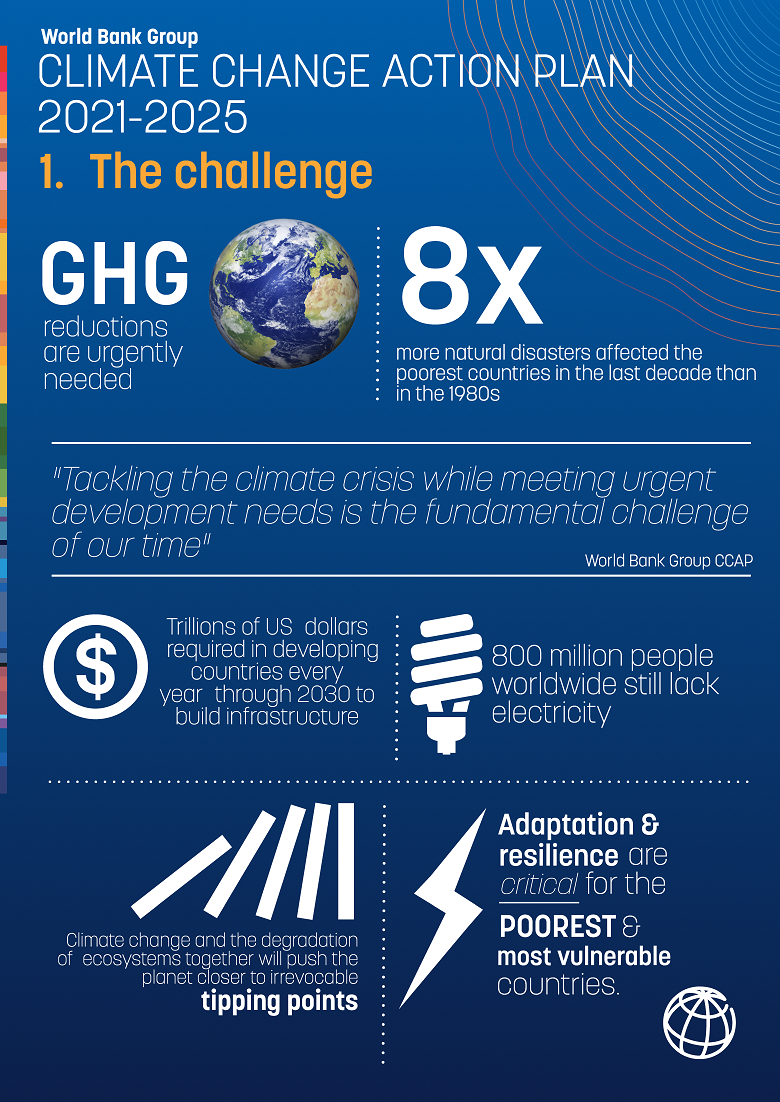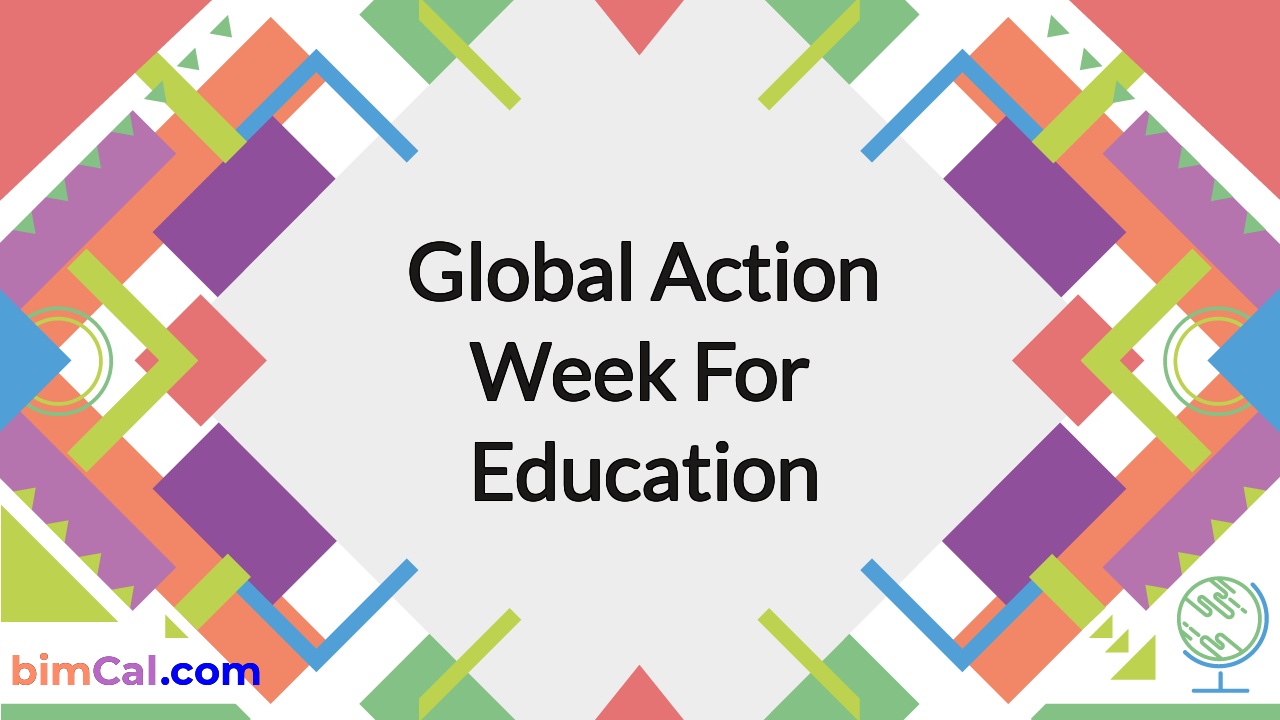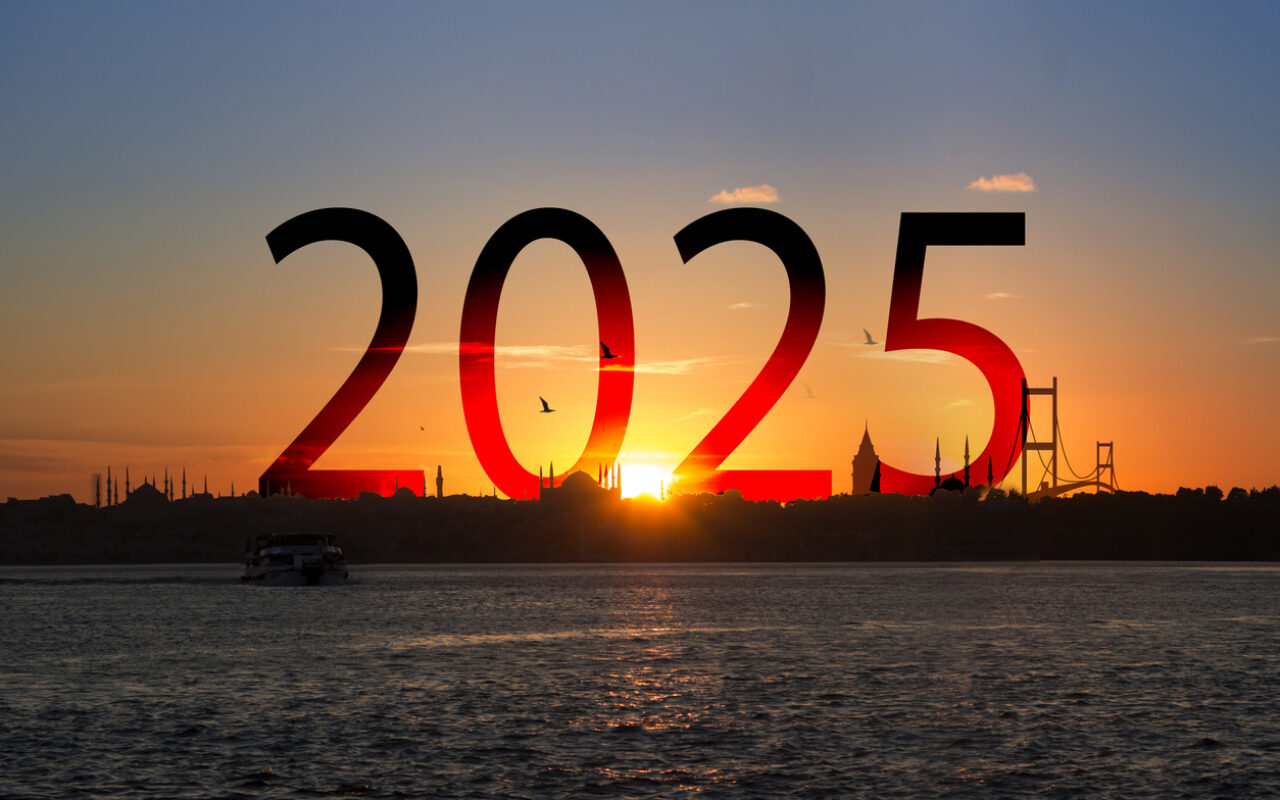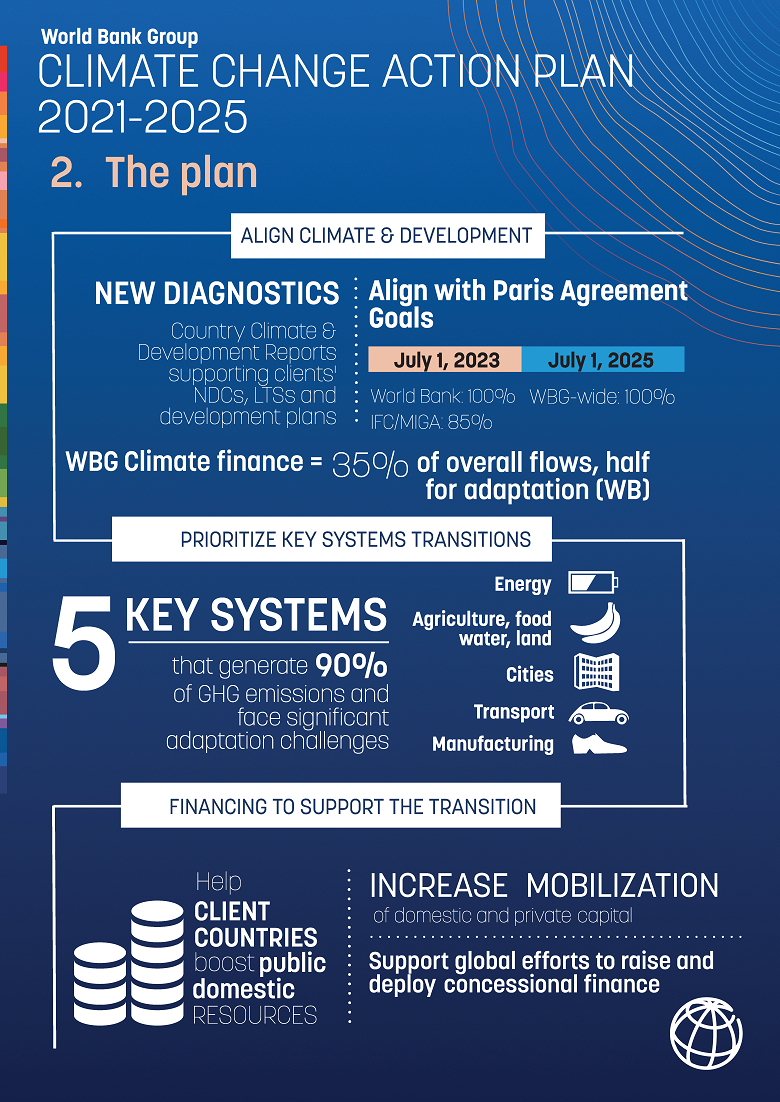A Comprehensive Guide to World Days in 2025: Celebrating Global Awareness and Action
Related Articles: A Comprehensive Guide to World Days in 2025: Celebrating Global Awareness and Action
Introduction
With enthusiasm, let’s navigate through the intriguing topic related to A Comprehensive Guide to World Days in 2025: Celebrating Global Awareness and Action. Let’s weave interesting information and offer fresh perspectives to the readers.
Table of Content
A Comprehensive Guide to World Days in 2025: Celebrating Global Awareness and Action

The calendar year 2025 will be punctuated by a diverse array of international days, each dedicated to raising awareness and promoting action on a specific global concern. These designated days serve as powerful platforms for fostering international cooperation, driving positive change, and reminding us of our shared humanity. This comprehensive guide provides an in-depth exploration of the world days in 2025, highlighting their significance and offering insights into their potential impact.
January:
- World Braille Day (January 4th): Celebrates the invention of Braille, a tactile reading and writing system for the blind and visually impaired. It emphasizes the importance of accessibility and inclusion for all.
- International Day of Education (January 24th): Focuses on the crucial role of education in promoting peace and sustainable development. It highlights the need for quality education for all, regardless of gender, ethnicity, or socioeconomic background.
February:
- World Cancer Day (February 4th): Aims to raise awareness about cancer and encourage its prevention, detection, and treatment. It emphasizes the importance of early diagnosis and access to quality healthcare.
- International Day of Zero Tolerance for Female Genital Mutilation (February 6th): Dedicated to eradicating female genital mutilation, a harmful traditional practice that violates women’s rights and health. It promotes global action to end this practice and ensure the well-being of girls and women.
- International Day of the Girl Child (February 11th): Celebrates the achievements of girls and advocates for their equal rights and opportunities. It highlights the importance of investing in girls’ education, health, and well-being.
- World Day of Social Justice (February 20th): Promotes social justice and equity for all, emphasizing the need to address poverty, inequality, and discrimination. It encourages action to create a more just and equitable world for all.
March:
- World Wildlife Day (March 3rd): Celebrates the diversity and beauty of wildlife and raises awareness about the threats facing endangered species. It encourages action to protect and conserve wildlife for future generations.
- International Women’s Day (March 8th): Celebrates the social, economic, cultural, and political achievements of women. It calls for gender equality and promotes women’s rights and empowerment.
- World Water Day (March 22nd): Focuses on the importance of freshwater resources and the need to manage them sustainably. It highlights the challenges of water scarcity and pollution and encourages action to protect this vital resource.
- World Tuberculosis Day (March 24th): Raises awareness about tuberculosis, a preventable and curable disease that affects millions worldwide. It promotes access to quality healthcare and effective treatment.
- World Meteorological Day (March 23rd): Celebrates the work of meteorologists and the importance of weather forecasting and climate monitoring. It highlights the role of weather and climate in our lives and the need for accurate and timely information.
April:
- World Health Day (April 7th): Focuses on a specific health issue each year, promoting global awareness and action. It emphasizes the importance of health and well-being for all.
- International Day for Mine Awareness and Assistance in Mine Action (April 4th): Raises awareness about the dangers of landmines and other explosive remnants of war. It promotes efforts to clear contaminated areas and provide assistance to victims.
- World Autism Awareness Day (April 2nd): Promotes understanding and acceptance of people with autism spectrum disorder. It encourages the inclusion of individuals with autism in all aspects of society.
- International Day of Peace (April 21st): Dedicated to promoting peace and non-violence worldwide. It encourages dialogue, understanding, and cooperation between individuals, communities, and nations.
- World Malaria Day (April 25th): Raises awareness about malaria, a preventable and treatable disease that affects millions worldwide. It promotes efforts to control and eliminate malaria through prevention, diagnosis, and treatment.
May:
- International Day of the Midwife (May 5th): Celebrates the vital role of midwives in providing quality maternal healthcare. It recognizes the contributions of midwives and promotes their education and training.
- International Day of Families (May 15th): Focuses on the importance of families in society and the need to support family well-being. It emphasizes the role of families in promoting peace and sustainable development.
- World Telecommunication and Information Society Day (May 17th): Celebrates the role of information and communication technologies in promoting development and connecting people worldwide. It highlights the importance of access to technology for all.
June:
- World Environment Day (June 5th): Focuses on a specific environmental issue each year, promoting global awareness and action. It encourages individuals, communities, and governments to take responsibility for protecting our planet.
- International Day Against Drug Abuse and Illicit Trafficking (June 26th): Raises awareness about the dangers of drug abuse and illicit trafficking. It promotes efforts to prevent drug abuse and provide treatment and rehabilitation for those who are affected.
July:
- International Day of Cooperatives (July 7th): Celebrates the role of cooperatives in promoting sustainable development and social justice. It recognizes the contributions of cooperatives in providing economic opportunities and empowering communities.
- World Population Day (July 11th): Focuses on the importance of population issues and the need for sustainable development. It highlights the challenges of population growth and the need for family planning and reproductive health services.
- International Nelson Mandela Day (July 18th): Celebrates the life and legacy of Nelson Mandela, a renowned anti-apartheid revolutionary and former president of South Africa. It encourages individuals to take action to create a more just and equitable world.
August:
- International Youth Day (August 12th): Celebrates the contributions of young people to society and promotes their involvement in decision-making processes. It highlights the importance of empowering youth and providing them with opportunities to thrive.
- International Day of the World’s Indigenous Peoples (August 9th): Celebrates the cultures, languages, and traditions of indigenous peoples worldwide. It promotes their rights and self-determination.
September:
- International Day of Peace (September 21st): Dedicated to promoting peace and non-violence worldwide. It encourages dialogue, understanding, and cooperation between individuals, communities, and nations.
- World Alzheimer’s Day (September 21st): Raises awareness about Alzheimer’s disease and other forms of dementia. It promotes research, prevention, and support for people living with dementia and their families.
- International Day of Charity (September 5th): Promotes the spirit of generosity and encourages people to donate their time and resources to help those in need. It highlights the importance of charity in building a more just and equitable world.
- World Literacy Day (September 8th): Promotes literacy and its importance for individuals, communities, and societies. It highlights the need for quality education and access to literacy resources for all.
- World Suicide Prevention Day (September 10th): Raises awareness about suicide prevention and promotes mental health and well-being. It encourages people to seek help if they are struggling and to support those who are at risk.
October:
- World Animal Day (October 4th): Celebrates the role of animals in our lives and promotes their welfare. It encourages respect for all animals and advocates for their protection from cruelty and exploitation.
- World Food Day (October 16th): Focuses on the importance of food security and the need to end hunger and malnutrition worldwide. It highlights the challenges of food production and distribution and encourages action to ensure that everyone has access to nutritious food.
- World Mental Health Day (October 10th): Raises awareness about mental health and promotes mental well-being. It encourages people to seek help if they are struggling and to support those who are living with mental health conditions.
- World Sight Day (October 10th): Focuses on the importance of eye health and the need to prevent blindness and visual impairment. It promotes access to eye care services and encourages healthy eye practices.
- International Day for Disaster Reduction (October 13th): Promotes global efforts to reduce disaster risk and build resilience to natural hazards. It highlights the importance of preparedness and mitigation measures.
- United Nations Day (October 24th): Celebrates the founding of the United Nations and its role in promoting peace, security, and development worldwide. It recognizes the contributions of the UN and its member states in addressing global challenges.
November:
- World Diabetes Day (November 14th): Raises awareness about diabetes, a chronic disease that affects millions worldwide. It promotes prevention, diagnosis, and treatment of diabetes and encourages people to live healthy lifestyles.
- World Children’s Day (November 20th): Celebrates the rights of children and promotes their well-being. It highlights the importance of investing in children’s education, health, and protection.
- International Day for the Elimination of Violence against Women (November 25th): Raises awareness about violence against women and girls and promotes efforts to end this harmful practice. It encourages action to prevent violence and provide support for survivors.
December:
- World AIDS Day (December 1st): Raises awareness about HIV/AIDS and promotes efforts to prevent, treat, and care for people living with HIV. It highlights the importance of access to treatment and care for all.
- International Day of Persons with Disabilities (December 3rd): Promotes the rights and well-being of people with disabilities. It encourages the inclusion of people with disabilities in all aspects of society.
- International Volunteer Day (December 5th): Celebrates the contributions of volunteers worldwide and promotes volunteering as a powerful force for change. It recognizes the importance of volunteerism in addressing social and environmental challenges.
- International Migrants Day (December 18th): Focuses on the contributions of migrants to society and promotes their rights and well-being. It highlights the challenges faced by migrants and encourages action to protect their rights and promote their integration.
- Human Rights Day (December 10th): Celebrates the Universal Declaration of Human Rights and promotes human rights for all. It encourages action to protect and promote human rights and ensure that everyone enjoys their fundamental freedoms.
FAQs
Q: What is the purpose of World Days?
A: World Days serve as global platforms to raise awareness and promote action on specific issues. They provide opportunities for individuals, communities, and governments to come together to address global challenges and create a better world for all.
Q: How can I participate in World Days?
A: There are many ways to participate in World Days. You can:
- Learn about the issue: Read about the topic, share information with your friends and family, and educate yourself about the challenges and solutions.
- Take action: Participate in events, donate to relevant organizations, or volunteer your time to support the cause.
- Spread the word: Share information about the day on social media, talk to your friends and family, and encourage others to participate.
Q: Why are World Days important?
A: World Days are important because they:
- Raise awareness: They bring attention to critical global issues and help people understand the challenges we face.
- Promote action: They encourage individuals, communities, and governments to take action to address these issues.
- Foster collaboration: They bring people together from around the world to work towards common goals.
- Celebrate achievements: They recognize the progress that has been made and inspire us to continue working towards a better future.
Tips for Celebrating World Days:
- Plan ahead: Identify the World Days that are most relevant to you and plan how you will celebrate them.
- Engage your community: Organize events, workshops, or campaigns to raise awareness and encourage participation.
- Use social media: Share information about the day, use relevant hashtags, and connect with others who are passionate about the cause.
- Support organizations: Donate to organizations that are working to address the issue or volunteer your time.
- Be a role model: Encourage others to participate in World Days and lead by example.
Conclusion
The world days in 2025 offer a powerful opportunity to raise awareness, promote action, and celebrate global achievements. By participating in these events, we can contribute to a more just, equitable, and sustainable world for all. It is our collective responsibility to seize these opportunities to drive positive change and build a better future for generations to come.








Closure
Thus, we hope this article has provided valuable insights into A Comprehensive Guide to World Days in 2025: Celebrating Global Awareness and Action. We appreciate your attention to our article. See you in our next article!
